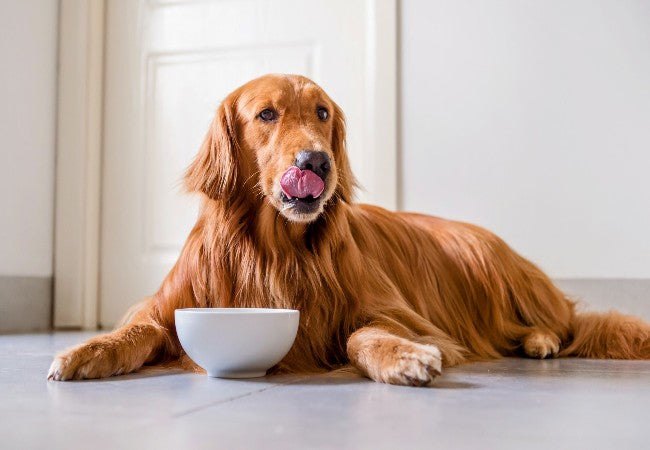5 Common Feeding Mistakes That Cause Dog Weight Gain: Vet Approved Tips for 2025 🩺🐶

In this article
5 Common Feeding Mistakes That Cause Dog Weight Gain: Vet Approved Tips for 2025 🩺🐶
By Dr. Duncan Houston BVSc
Seeing extra pounds on your pup? You're not alone—over 60% of dogs in the U.S. are overweight or obese, which can lead to arthritis, diabetes, and reduced lifespan. Let's address five common feeding and lifestyle mistakes and how to fix them in 2025.
1️⃣ Guessing Food Portions 🥣
Many pet parents “guestimate” meals—using old cups or scoops—which leads to overfeeding. Experts recommend measuring accurately based on your dog’s ideal weight and using measuring cups or a scale.
2️⃣ Forgetting Treat Calories 🍪
Treats can make up over one-third of daily calories if left untracked. Keep treats to under 10% of total intake, read labels, and adjust main meals accordingly.
3️⃣ Too Little Exercise 🐕🦺
Lack of activity means calories aren't burned. Most dogs need 20–60 minutes of walk or play daily. High-energy dogs may need over an hour.
4️⃣ Poor Diet Quality 🍽️
Low-quality food with fillers can lead to overeating. Choose high-quality, AAFCO-compliant food tailored to life stage. For weight loss, vet diets like Hill’s Metabolic or Royal Canin Satiety may be recommended.
5️⃣ Feeding Table Scraps 🍗
Human food is often high in fat and calories, and can lead to GI upset or pancreatitis—as well as unintentional weight gain. Stick to commercial diets and safe, measured snacks.
🔁 Bonus Tip: Routine & Monitoring 📅
Feed scheduled meals (no free-feeding), weigh your dog monthly, and track progress. A healthy weight loss goal is 1–2% body weight per week.
📊 Summary Table: Mistakes & Fixes
| Mistake | Impact | Vet-Approved Fix |
|---|---|---|
| Unmeasured portions | Calories unknowingly high | Weigh and measure accurately |
| Excess treats | Hidden calorie overload | Limit to <10%, adjust meals |
| Low exercise | Calories stored as fat | 30–60 min daily activity |
| Poor food quality | Overeating to feel full | Use high‑quality or vet diets |
| Table scraps | Extra fat and GI upset | No scraps; healthy treats only |
💡 When to Talk to Your Vet
If weight persists despite diet and exercise changes, consider medical causes like hypothyroidism or Cushing’s disease—these require diagnostics and treatment.
🎯 Final Thoughts
In 2025, keeping your dog healthy means monitoring calories from all sources, providing regular exercise, choosing quality food, avoiding human scraps, and tracking progress. With these strategies, you can help your pup reach their ideal weight, improving energy, comfort, and lifespan. 🐾❤️
Need a tailored diet and exercise plan? Download the Ask A Vet app for real-time, expert guidance on weight loss and nutrition. 📱🩺






